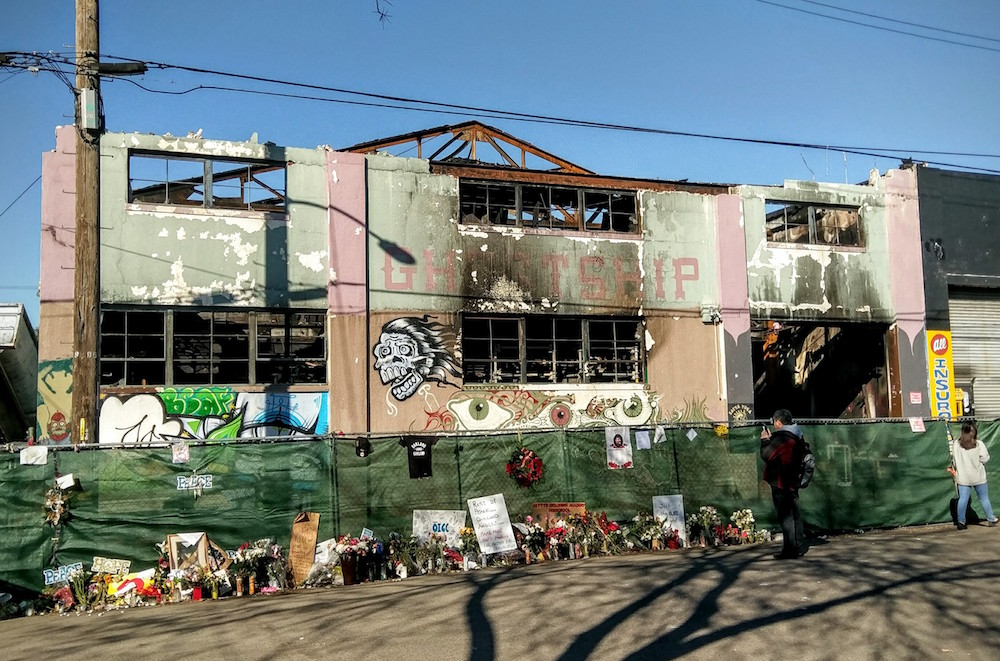An Oakland fire captain said on Tuesday that Ghost Ship warehouse master tenant Derick Almena told him in September 2014 that no one was living at the structure in Oakland’s Fruitvale district where 36 people perished in a fire in 2016.
Testifying in the trial of Almena, 49, and Ghost Ship creative director Max Harris, 29, who face 36 counts of involuntary manslaughter for the Dec. 2, 2016 blaze, Oakland Fire Capt. George Freelen said he and three colleagues visited the building at 1309 31st Ave. in late September 2014, a few days after there’d been a couch fire outside the warehouse. Freelen, who heads a fire station that’s only about a block away from the warehouse, said the visit wasn’t a formal inspection but he wanted to visit the warehouse because “I wanted to see what was inside” and Almena gave him permission to enter the building.
Freelen said the building had “a lot of materials,” such as pianos, organs, a recreational vehicle, a trailer and “a lot of different wood products.” Freelen said he was concerned about what he described as a “medium to high” fire load at the warehouse, explaining that fire load refers to the potential for fire from various materials inside a structure.
The fire captain said when he asked Almena if anyone was living at the warehouse Almena said no one was and said the building was being used as an art collective.
Freelen also said he didn’t see any fire suppression materials at the warehouse, such as sprinklers and fire alarms.
Alameda County prosecutors allege that Almena and Harris are criminally liable for the fire because there was no time and no way for the people at the party to escape since the warehouse didn’t have important safeguards, such as fire extinguishers, smoke alarms and exit signs. Prosecutors also say Almena and Harris violated the terms of the warehouse’s lease by turning it into a living space where up to 25 people stayed and hosting underground music parties there.
Freelen said it wasn’t clear to him what type of occupancy the building was zoned for so he filed a report with Oakland fire inspectors asking for clarification but he never heard back from them. Freelen said if he’d known people were living at the warehouse, “A whole different set of coding would have applied and I would have called my battalion chief immediately and told him that people were living in an unsafe environment and it should be corrected immediately.”
In a combative cross-examination, Harris’s lawyer Curtis Briggs asked Freelen why he never went back to the warehouse after his visit in September 2014 if he was concerned about potential safety problems there. Freelen said he didn’t go back because he was confident that the Oakland Fire Department’s OneStep database system would contain his information about his concerns and would resolve the building’s occupancy status.
Almena’s lawyer Tony Serra alleged that Freelen’s claim that he filed a report requesting clarification about the warehouse’s occupancy status “was never ascertained by anyone, anywhere,” but prosecutor Autrey James objected to Serra’s allegation and Alameda County Superior Court Judge Trina Thompson sustained his objection.
